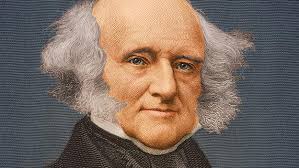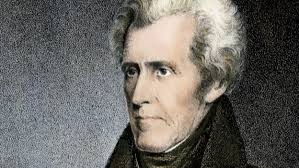DECEMBER 5 — 2013 Pres. Obama speaks out on the loss of Nelson Mandela; 1782 Happy Birthday Martin Van Buren; 1933 Prohibition ends
DECEMBER 5
2013 America mourns the loss of Nelson Mandela.
President Barrack Obama had American flags at half mast for a few days, a rather unusual tradition for a foreign leader. But it illustrates just how Mandela affected Amerce from protests to popular culture. Thousands of people in L.A. and Chicago and many other cities took to the streets to mornone of the most influential men of the last hundred years.
Nelson Mandela was originally charged for attempting to violently overthrow the government by leading the African National Congress or the ANC, which was outlawed in 1960. However, violence was something that Mandela refused to use as a political weapon. Finally the ban was lifted in 1990 and Mandela released from prison to a huge elated crowd who met him at Cape Town to hear his speech of democracy and freedom, coming not as their prophet, but as a humble servant to the people.
He continued however that the struggle against apartheid must continue. He went on to lead the ANC, and won the presidential election in 1994, making Mandela the first black president in South Africa. Meanwhile in America, Obama addressed the nation of how Mandela influenced him during his first public speech, “My very first political action, the first thing I ever did that involved an issue or a policy on politics, was a protest against apartheid. I studied his words, and his writings.”
Rest in peace, Nelson!

1782 – Happy birthday Martin “The Little Magician” “Red Fox of Kinderhook “Van Buren, #8. The son of a farmer and tavern keeper, Matty, as he was nicknamed, was the first U.S. President not to be a British subject. Actually he was Dutch and was born six years after America declared independence from Great Britain. His father couldn’t afford to send Matty off to college, so he worked as a clerk at a law firm where he studied law by himself.
In 1803 he opened up his own law practice and began his political career as a member of the Democratic – Republican Party. Four years later, he married his cousin once removed Hannah Hoes. They would have four children together; the oldest would attend West Point. He was elected Senator of New York in 1821, and when John Quincy Adams won a rather controversial election for the president of the U.S., Old Kinderhook Van Buren threw his support towards Andrew Jackson, and helped to forge a new party of Jeffersonian Republicans into what would become the Democratic Party.

When Jackson defeated Adams Jr. in the presidential election of 1828, he appointed Van Buren Secretary of State. A political rift grew within Jackson’s cabinet, namely with his Vice President John Calhoun, and as a result Van Buren became Jackson’s most trusted advisor. Old Kinderhook Van Buren and Secretary of War John Eaton resigned their posts, hoping that Calhoun would also resign. Instead, after their resignations, Andy Jackson got rid of his cabinet, appointed a new one, and appointed OK Van Buren Minister to Great Britain. Incidentally, O.K. is short for Old Kinderhook; I’ll get to that in a minute.
In the election of 1832, Jackson appointed Old Kinderhook Van Buren as his running mate and they easily defeated Henry Clay of the Whig party. In his second term, Jackson dismantled the federally funded Bank of the United States to create state banks, which would begin a massive depression that would haunt Van Buren’s legacy as president four years later. So the Little magician Van Buren easily defeated Whig leaders Clay and William Henry Harrison to become the eighth president. And now had to deal with the Panic of 1837. Which leads me to some of his many nicknames. He was called the Red Fox by his political enemies, due in part to his political savvy as well as his red-headed sideburns. Other nicknames include Little Van, The Enhancer, The Careful Dutchman, The Great Manager, the master Spirit, the American Talleyrand, King Martin, Mattie Van, and of course, O.K. Van Buren. The word okay that we use to this day has a lot of variations to its origins, and this is one of them. But the strongest nicknames he had due to his inability to deal with the worst depression America had seen to this point, was Martin Van Ruin, or Martin Van Burden.
Andy Jackson’s destruction of the bank had removed restrictions on inflationary practices among state banks and gave easy bank credit which caused wild speculation in western lands. To counter this, Jackson in 1836 issued the Specie Circular which required lands to be purchased using hard money gold and silver. This did almost nothing to help the depression, and as president Old Kinderhook attempted to create an independent treasury to handle federal funds that were moved to state banks and remove all federal government expenditures, to the point where the Government had to sell the tools it needed on public works. And still, the nation’s economic woes continued. It didn’t help that the Little Magician redecorated the Executive Mansion, now known as the White House, and used golden spoons to eat his food while the rest of the country lost their lands.
Van Ruin’s legacy was further tarnished by wars against the Seminole Indians in Florida as well as his refusal to annex Texas. The latter, he believed, would simply cause a war with Mexico, which of course, it eventually would. In the election of 1840, Matty Red Fox Van Burden was handedly defeated by Harrison, and his presidency was considered an epic fail, and he was seen as a man who would burn a barn to get rid of rats. In 1848 he tried running as a Free Soiler, but lost Zach Taylor and did not receive one single electoral vote.
He retired to Kinderhook and grew potatoes on the farm where he was born. Martin Van Buren, one of the main founders of the Democratic Party, was born during the American Revolution, and died at age 79 during the American Civil War. As to the presidency, he once stated, the two happiest days of his life were those of his entry to the office and the day of his surrender of it.
Happy Birthday, Martin!

1933 – The prohibition ends. In 1917, the 18th amendment was passed which prohibited Americans from drinking booze. This led to speakeasy places, bootlegging, and Al Capone’s Chicago criminal empire. And everyone who wanted to drink found a way to drink. On December 5 1933, the 21st Amendment was passed and ratified, ending the Prohibition. Drink up everybody!
